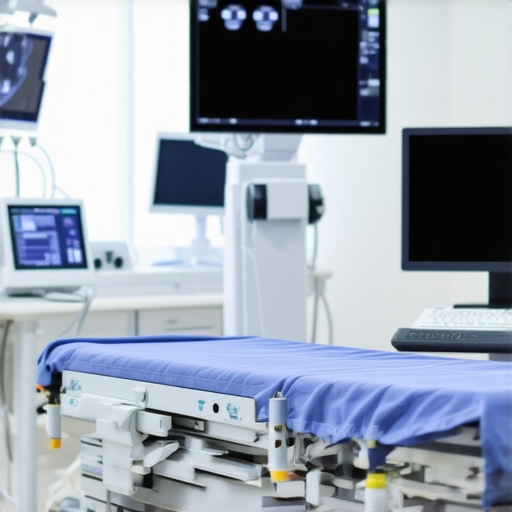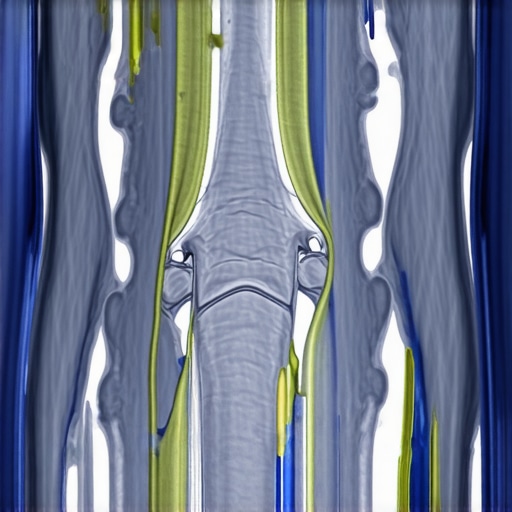My First Encounter with Tension Headaches at the Desk
As someone who spends hours behind a computer, I remember the first time I felt that nagging headache creeping in after a long day. It was a dull ache at first, but soon became a persistent pressure that affected my focus and productivity. Like many NJ office workers, I realized that my posture and workstation setup might be contributing to my discomfort.
The Hidden Causes of Desk-Related Headaches
Through research and personal trial, I discovered that tension headaches often stem from poor ergonomics, prolonged sitting, and stress. According to experts, maintaining proper posture and taking regular breaks are crucial in preventing these headaches. The medical community in NJ emphasizes the importance of tailored orthopedic care for desk workers, which I found through a trusted orthopedic spine specialist.
Simple Changes That Made a Big Difference
After consulting with an NJ orthopedic specialist, I learned about the importance of ergonomic adjustments. I started with an adjustable chair, ensuring my feet were flat on the ground and my monitor was at eye level. Incorporating stretches and short walks into my day significantly reduced my tension. These small modifications, backed by reputable orthopedic advice, truly transformed my daily comfort.
When to Seek Professional Help
If headaches persist despite ergonomic improvements, it might be time to see a specialist. Symptoms like frequent headaches, neck pain, or numbness could indicate underlying issues requiring targeted treatment. I found that visiting a dedicated NJ orthopedic clinic provided personalized care, including therapies and non-invasive treatments, which you can explore more about here.
How Do I Know If My Headaches Are More Than Just Tension?
This is a question I asked myself when my headaches became more intense. Consulting with an orthopedic doctor or spine specialist can help determine if there’s an underlying condition that needs advanced treatment. External sources like the Mayo Clinic provide comprehensive info on headache types and treatments.
If you’re like me, dealing with desk-related tension headaches, remember that ergonomic adjustments, regular movement, and professional care can make a real difference. Share your experiences or ask questions in the comments below—I love hearing how others manage similar challenges!
Understanding the Role of Ergonomics in Headache Prevention
Many NJ office workers underestimate the impact of ergonomic setup on their health. Proper workstation design, including adjustable chairs that support the lumbar spine and monitor placement at eye level, plays a vital role in reducing tension headaches. According to a recent study published by the National Institutes of Health, ergonomic interventions significantly decrease the incidence of work-related musculoskeletal disorders and headaches. Incorporating ergonomic principles not only alleviates pain but also boosts productivity and overall well-being.
The Science Behind Tension Headaches and Posture
From an expert perspective, prolonged poor posture causes muscle strain, especially in the neck, shoulders, and upper back. This strain triggers tension headaches that can escalate if ignored. Recognizing early signs—such as tightness in the neck muscles or persistent pressure—allows for timely intervention. Regular stretching, ergonomic adjustments, and stress management are proven strategies to prevent chronic tension headaches. For personalized advice, consulting a trusted orthopedic spine specialist in NJ can provide tailored solutions.
Practical Strategies for Long-Term Relief
Implementing practical habits like ergonomic workstations, scheduled breaks, and posture awareness can dramatically reduce headache frequency. For instance, the 20-20-20 rule—every 20 minutes, look at something 20 feet away for at least 20 seconds—helps relax eye muscles and reduce strain. Additionally, integrating regular physical activity and stress reduction techniques, such as deep breathing exercises or mindfulness, complements ergonomic improvements. An expert tip is to explore non-invasive treatments, like physical therapy or targeted chiropractic care, which have shown promising results in managing chronic tension headaches. Learn more about effective non-surgical care for neck and head pain here.
Can Advanced Treatments Offer Long-Lasting Relief for Chronic Headaches?
This is a pivotal question for many NJ residents suffering from persistent tension headaches. Advanced therapies—such as minimally invasive nerve blocks or laser spine surgery—can provide significant relief when conservative measures fail. Consulting with a specialized NJ orthopedic surgeon can help determine if your headaches are linked to underlying spinal issues requiring surgical intervention. For comprehensive insights into surgical options and their risks and benefits, visit here. Remember, a personalized treatment plan crafted by qualified specialists ensures optimal outcomes.
If you’re interested in more expert advice or want to share your experiences with desk-related headaches, please comment below or share this article with colleagues facing similar challenges. For ongoing updates on orthopedic innovations and practical health tips, consider subscribing to our blog or exploring related reads about rehabilitation after lumbar fusion.
My Personal Journey: Beyond Basic Ergonomics to Advanced Headache Management
Reflecting on my experience with tension headaches, I realize that initial ergonomic fixes were just the beginning of a much more nuanced journey. As I delved deeper, I discovered that underlying spinal issues or muscular imbalances often require sophisticated diagnostic approaches to truly understand and address the root cause. For instance, advanced imaging techniques like MRI scans, recommended by leading NJ orthopedic specialists, can reveal subtle spinal misalignments or nerve compressions that simple adjustments might overlook.
The Hidden Complexity of Chronic Tension Headaches
Chronic tension headaches aren’t just about muscle strain; they can involve complex neurovascular mechanisms that intertwine with stress and emotional health. I found that integrating approaches such as biofeedback, cognitive behavioral therapy, and targeted physical therapy enhances treatment effectiveness. Experts suggest that a multidisciplinary approach, combining physical, psychological, and sometimes pharmacological therapies, offers the most sustainable relief. In NJ, clinics that employ such integrative methods are making significant strides, providing personalized care tailored to each patient’s unique condition, which you can learn more about here.
What Are the Nuanced Signs That Indicate a Need for Advanced Surgical Intervention?
This question weighed heavily on my mind, especially when headaches became more intense or were accompanied by symptoms like persistent numbness or weakness. From my experience and conversations with NJ orthopedic surgeons, I learned that these signs often indicate that conservative treatments are insufficient and that more definitive interventions, such as minimally invasive spine surgery, might be necessary. According to recent data from the NJ spine specialists, early surgical consultation can prevent the progression of spinal conditions that contribute to headaches and neurological deficits.

Understanding the advanced diagnostics and intervention options available in NJ has empowered me to make informed decisions about my health. It’s essential to seek expert opinions when symptoms escalate beyond typical tension headache patterns, especially considering the risks and benefits of procedures like laser spine surgery or nerve blocks. These treatments, supported by high-level clinical evidence, can provide long-term relief when tailored correctly.
The Road to Personalized, Long-Lasting Relief
What truly transformed my outlook was realizing that managing tension headaches isn’t about a quick fix but about cultivating a comprehensive, personalized care plan. This includes ergonomic excellence, stress management, targeted physical therapy, and, when necessary, advanced surgical options. I encourage anyone facing similar struggles to explore NJ’s multidisciplinary clinics, where cutting-edge technology and expert care converge to offer hope and healing. If you’re curious about your options or want to share your journey, please comment below—I value hearing from others navigating this complex, yet manageable, challenge.
Unlocking the Depths of Chronic Headache Management Beyond Basic Ergonomics
My journey into understanding and tackling persistent tension headaches took me beyond conventional ergonomic adjustments. As I explored sophisticated diagnostic tools, I realized that subtle spinal misalignments or nerve compressions often evade standard assessments but are crucial in comprehensive treatment planning. Advanced imaging techniques, such as high-resolution MRI scans, recommended by leading NJ orthopedic specialists, can reveal these elusive issues, enabling targeted interventions that significantly improve long-term outcomes.
The Neurovascular Complexity Underpinning Chronic Headaches
Chronic tension headaches are not solely muscular; they involve intricate neurovascular mechanisms intertwined with emotional stress and neuroplasticity. I found that integrating multidisciplinary approaches—combining physical therapy, biofeedback, and psychological therapies—yields more sustainable relief. According to a detailed review published in the Journal of Pain Research, addressing both physical and emotional components enhances treatment efficacy, especially for stubborn, recurrent headaches.
When Do Symptoms Signal the Need for Surgical Intervention?
In my experience and consultation with NJ spine surgeons, symptoms such as persistent numbness, weakness, or worsening neurological deficits often indicate that conservative therapies are insufficient. These signs suggest underlying structural issues like nerve root compression or spinal instability, which may necessitate minimally invasive surgical options. Early surgical consultation, supported by evidence from the NJ spine specialists, can prevent irreversible nerve damage and improve quality of life.

Understanding the nuanced indicators for surgery and the role of cutting-edge diagnostics empowers patients to make informed decisions. If your headaches persist despite comprehensive conservative care, exploring advanced surgical options with experienced NJ orthopedic surgeons can be a vital step toward lasting relief.
Personalized, Multi-Faceted Approaches to Long-Term Headache Relief
Achieving enduring relief from tension headaches involves a holistic, individualized strategy. Besides ergonomic excellence, I incorporated stress management techniques like mindfulness meditation, targeted physical therapy, and sometimes pharmacological support when necessary. Exploring non-invasive treatments such as spinal decompression therapy or nerve block injections—supported by clinical evidence—can be game-changers. To learn about effective conservative treatments, visit here.
Can Integrative, Advanced Therapies Sustainably Eliminate Chronic Headaches?
This question echoes in my mind as I consider the potential of emerging therapies like laser spine surgery or regenerative medicine. In NJ, clinics employing such innovative treatments offer hope for patients with resistant headaches. These interventions, backed by rigorous research and tailored to individual pathology, can provide long-lasting relief. Consulting with highly specialized NJ orthopedic spine surgeons—whose expertise encompasses both traditional and advanced therapies—can clarify the most suitable approach for your condition. For details on surgical risks and benefits, visit here.
If you’re navigating the complex landscape of chronic tension headaches, I invite you to share your experiences or ask questions below. Engaging with specialists and exploring personalized treatment pathways can unlock new horizons of relief and well-being, transforming your quality of life.
Things I Wish I Knew Earlier (or You Might Find Surprising)
Ergonomics Is Just the Beginning
Initially, I thought adjusting my chair and monitor was enough, but I soon realized that underlying spinal issues or muscular imbalances often require more sophisticated diagnostics like MRI scans, which I learned from top NJ orthopedic specialists. These detailed assessments helped me target the real causes of my headaches.
Stress Management Matters More Than I Thought
While ergonomic fixes helped, incorporating mindfulness and deep breathing exercises made a noticeable difference. Managing emotional stress turned out to be a crucial part of my headache relief journey, as supported by multidisciplinary approaches in NJ clinics.
Advanced Treatments Are Worth Considering
When conservative measures plateaued, exploring non-invasive procedures like nerve blocks or laser spine surgery offered me hope for lasting relief. Consulting experienced NJ spine surgeons provided clarity on these options, emphasizing the importance of personalized care plans.
Patience and Persistence Are Key
Relief didn’t happen overnight. It took time, adjustments, and ongoing communication with healthcare providers. My experience taught me that a comprehensive approach, combining ergonomics, therapy, and when needed, surgical options, can ultimately turn the tide against chronic tension headaches.
Resources I’ve Come to Trust Over Time
- Mayo Clinic: Their detailed explanations on headache types and treatments helped me understand my condition better. I recommend it for reliable, evidence-based info.
- National Institutes of Health: Their research on ergonomic interventions and musculoskeletal disorders deepened my understanding of prevention strategies, making it easier to advocate for myself in clinical settings.
- PubMed: Accessing recent studies on neurovascular mechanisms behind chronic headaches was eye-opening and helped me appreciate the complexity of my condition.
Parting Thoughts from My Perspective
If you’re battling tension headaches related to desk work, remember that it’s often a multi-layered issue. Ergonomic improvements are a great start, but don’t hesitate to seek advanced diagnostics and personalized treatments from NJ orthopedic specialists. Managing stress and practicing patience is essential, too. My journey has shown me that long-term relief comes from a holistic, tailored approach. If this resonates with you, I’d love to hear your thoughts or experiences—feel free to share below or explore more about innovative orthopedic care in NJ to find what works best for your unique situation. Stay proactive, and take care of yourself!

